This year has been a bit of a bust when it comes to edible spring mushrooms like morels. The prolonged cold followed by a seemingly overnight shift to summer-like heat has prevented many of the species that should be fruiting abundantly by now from showing themselves in the forest. That being said, there are always some mushrooms to be found to those with a keen eye and the patience to hunt for them.
Over the last week, I have come across a variety of fungi sprouting for the the woods of western Michigan, USA, some more exciting than others. The one saving grace for this years otherwise disappointing spring hunting season has been the abundance of Golden Oyster mushrooms (Pleurotus citrinopileatus) that I have been able to find growing along streams. A couple of weeks ago, I documented one tree in particular that I came across adorned with several pounds of fresh Golden Oysters (https://peakd.com/hive-166168/@tych021/mushroom-monday-an-abundance-of-oysters). Although I have yet to find another fruiting as prolific as this, I continue to find smaller fruitings of Golden Oysters that have kept me out hunting for more.
Apart from the golden oysters, I was pleased to come across many other fungal species, including the ever-creepy Dead Man's Fingers (Xylaria polymorpha), plenty of Dryad's Saddle (Cerioporus squamosus), and the delicate but beautiful Gymnopus subsulphureus, a species that is new to me.
Golden Oyster (Pleurotus citrinopileatus):
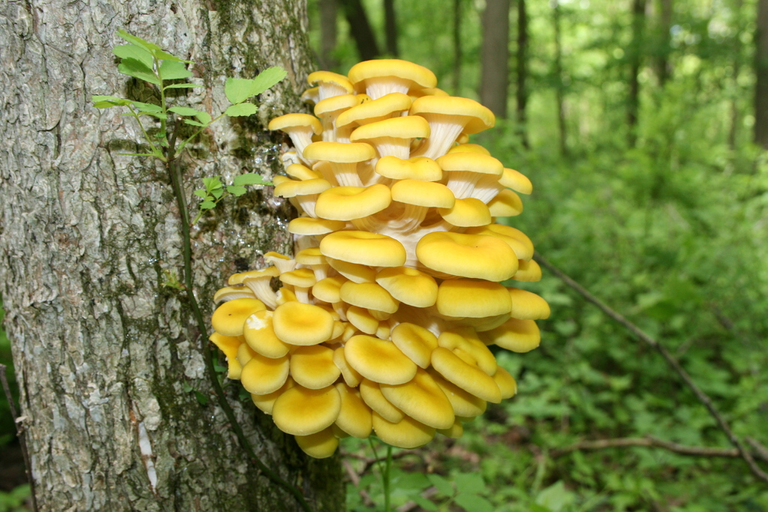
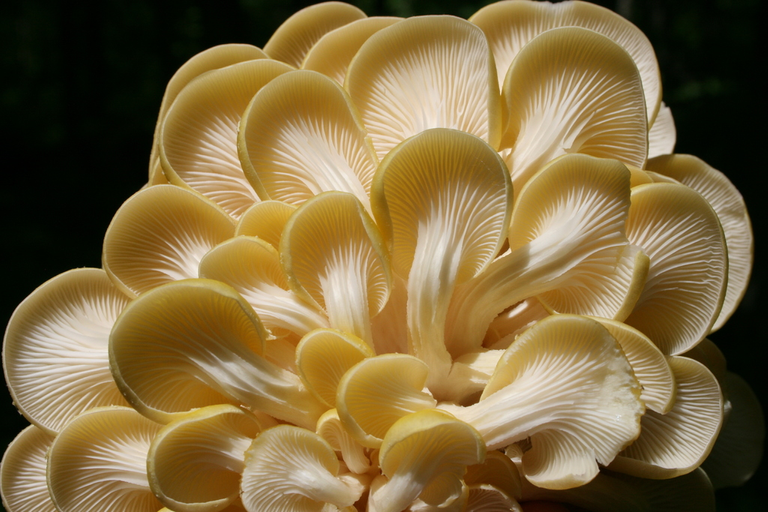
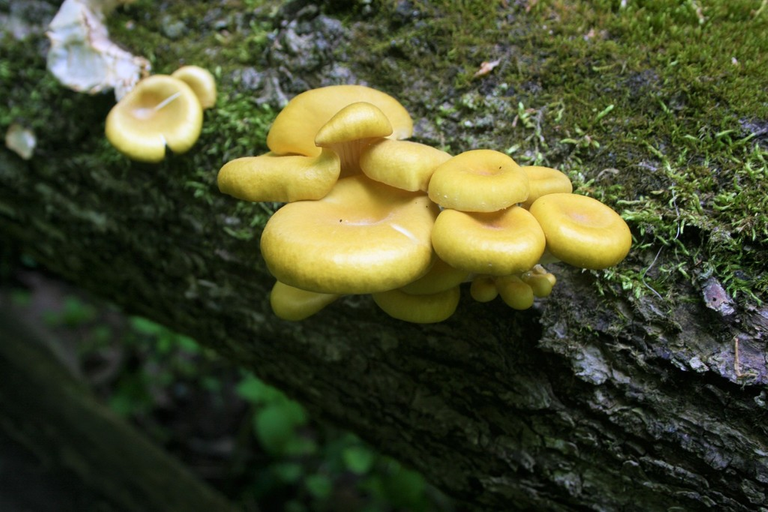
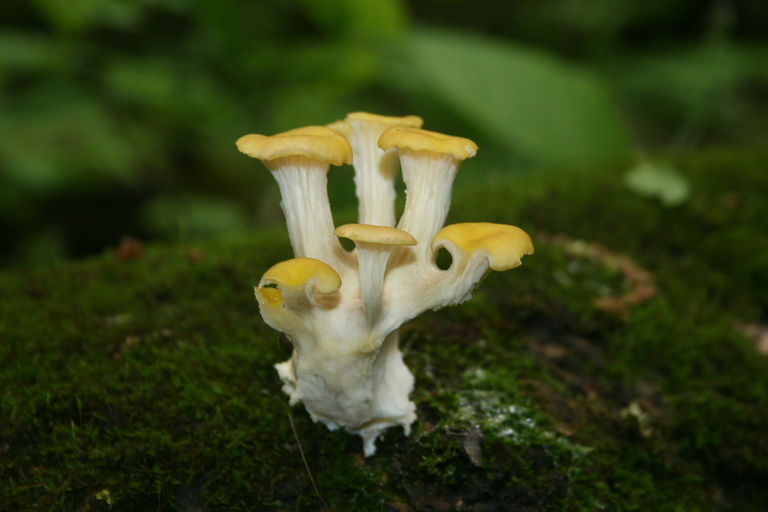
Dead Man's Fingers (Xylaria polymorpha):
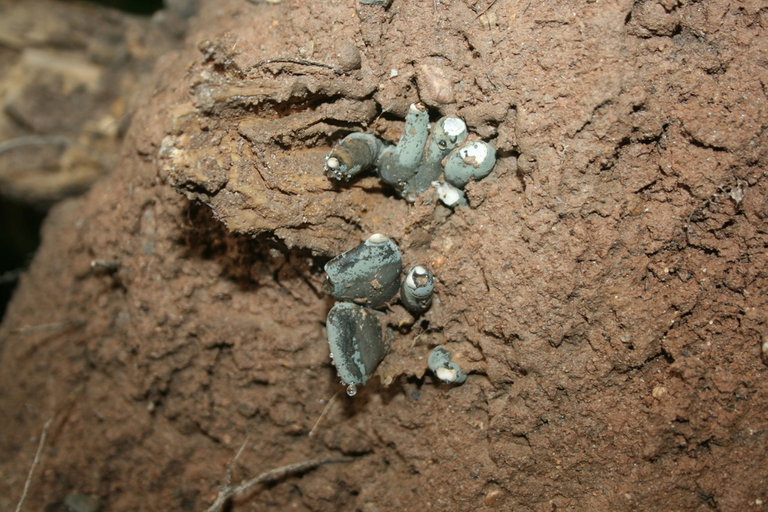
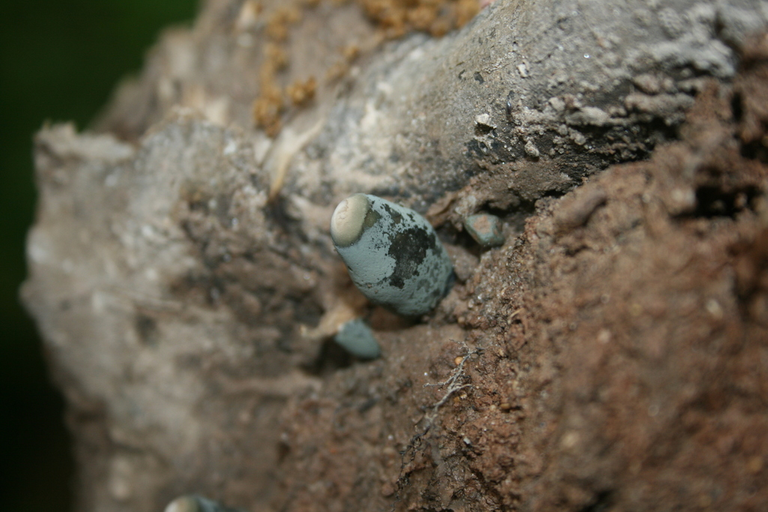
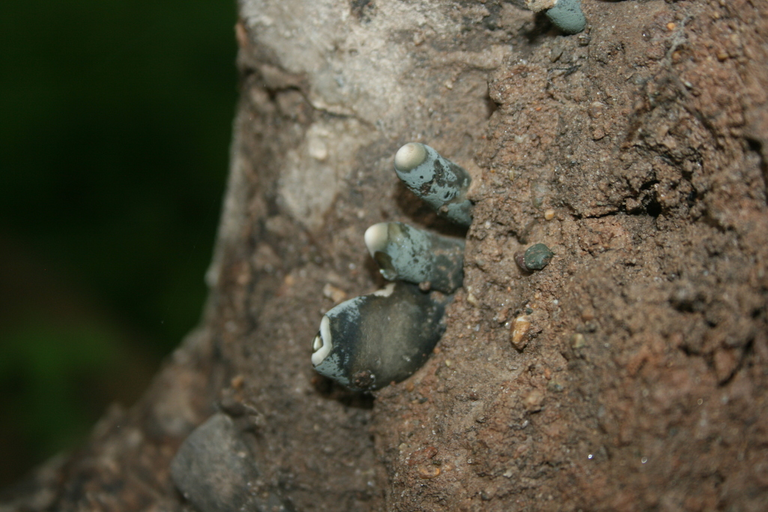
Dryad's Saddle (Cerioporus squamosus):
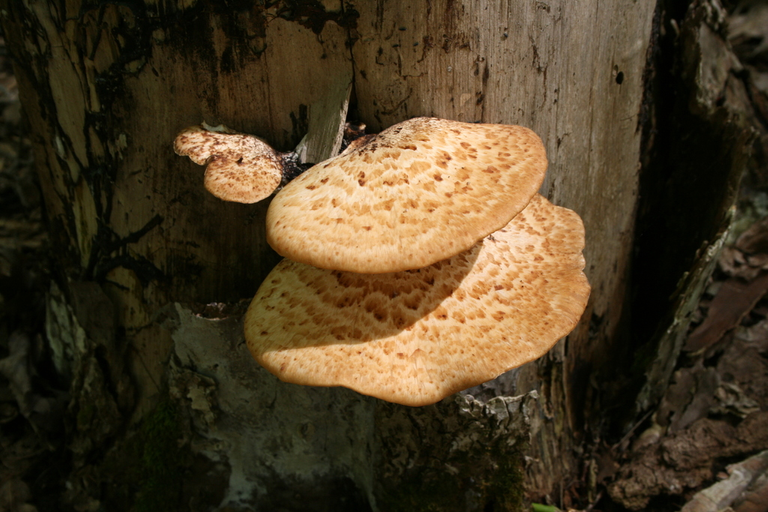
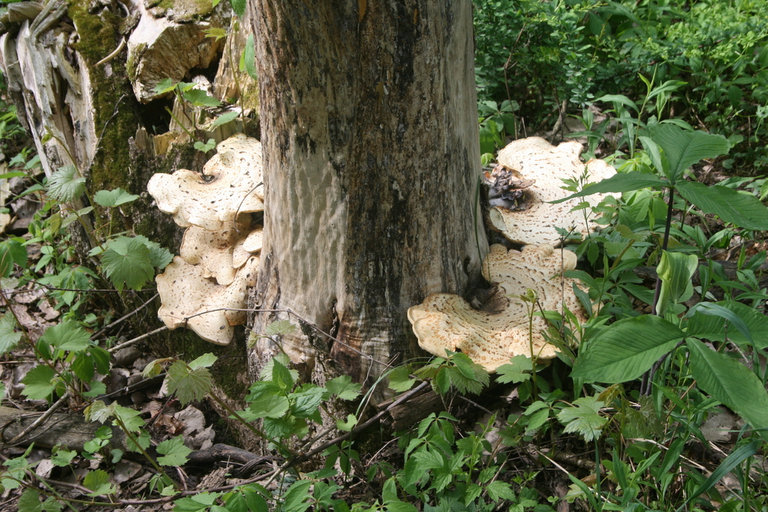
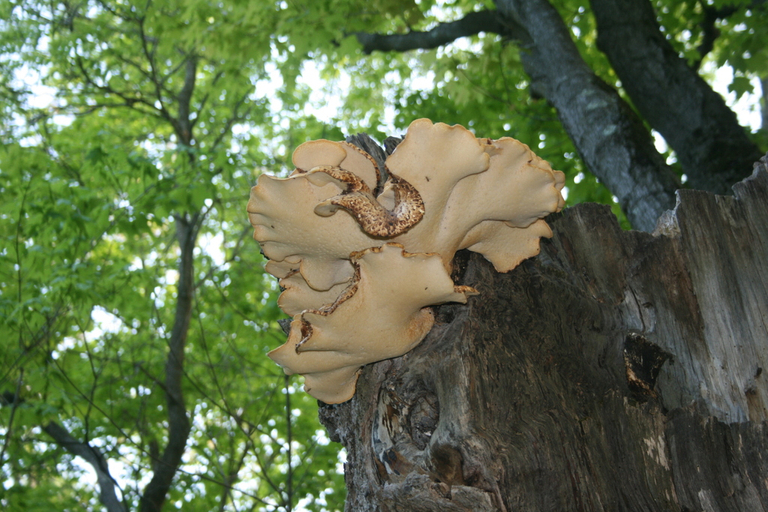
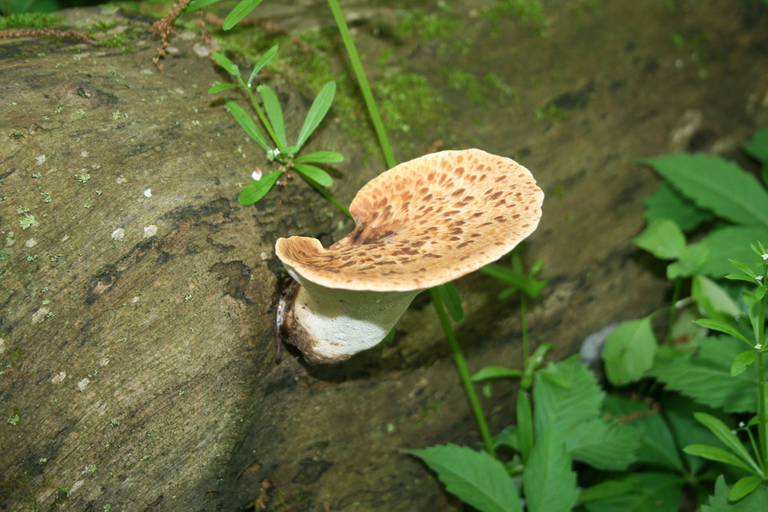
Gymnopus subsulphureus:
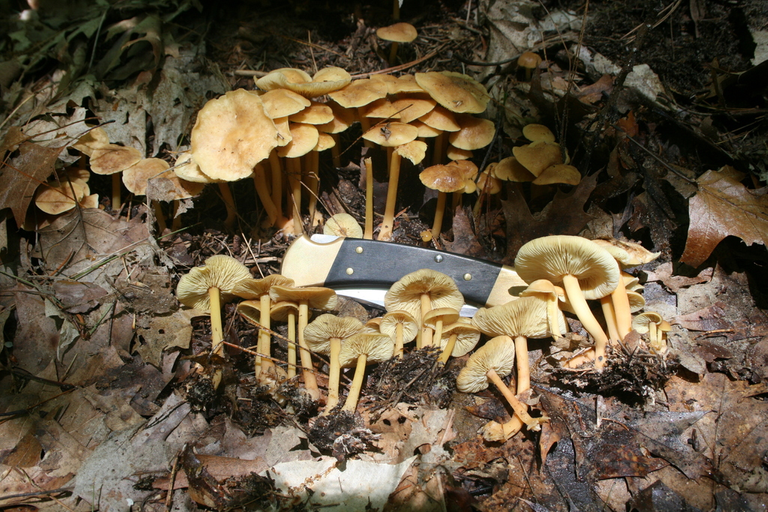
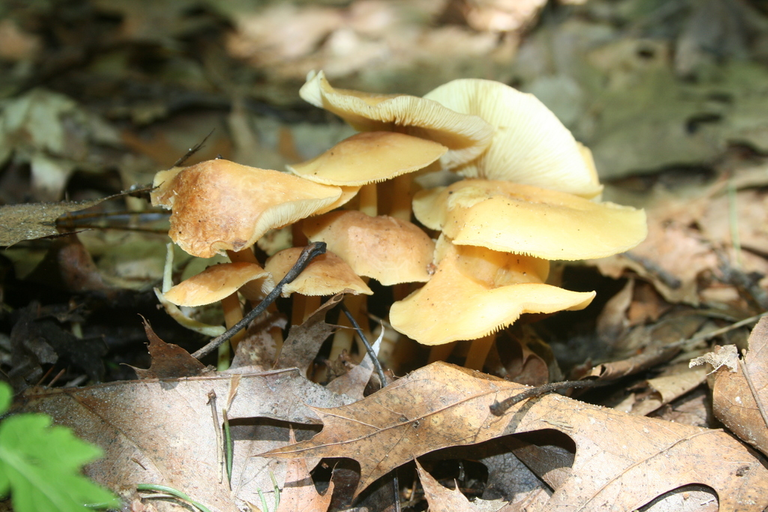
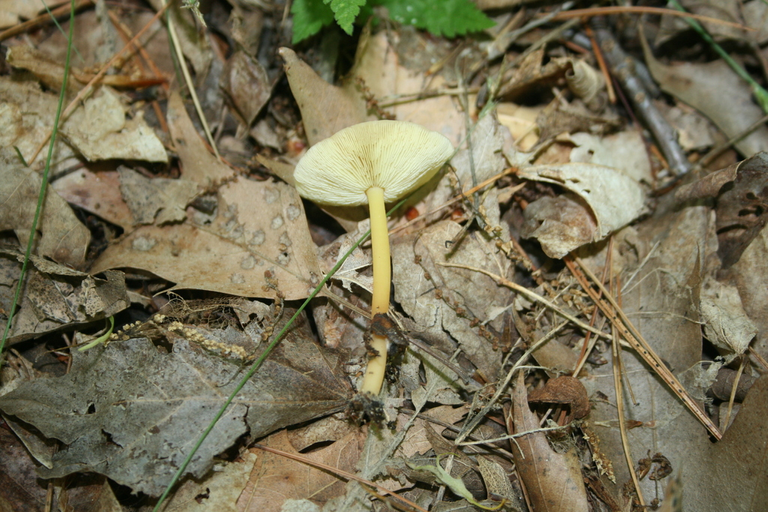
Mayapple Rust (Allodus podophylli):
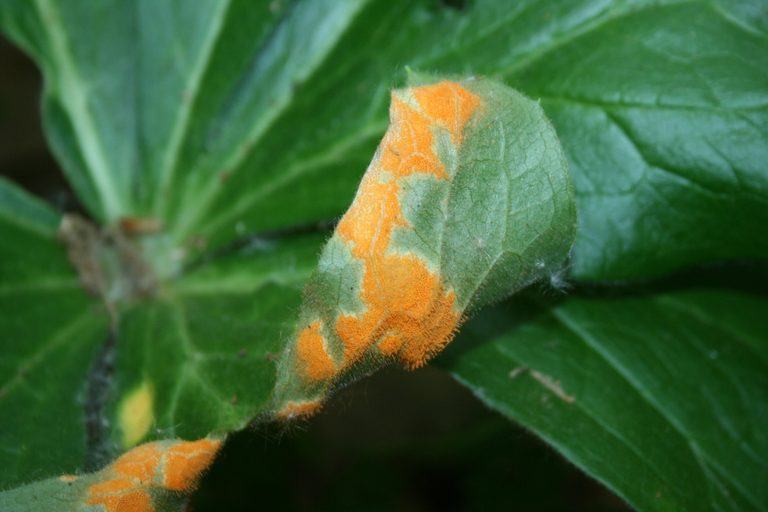
Veiled Polypore (Cryptoporus volvatus):
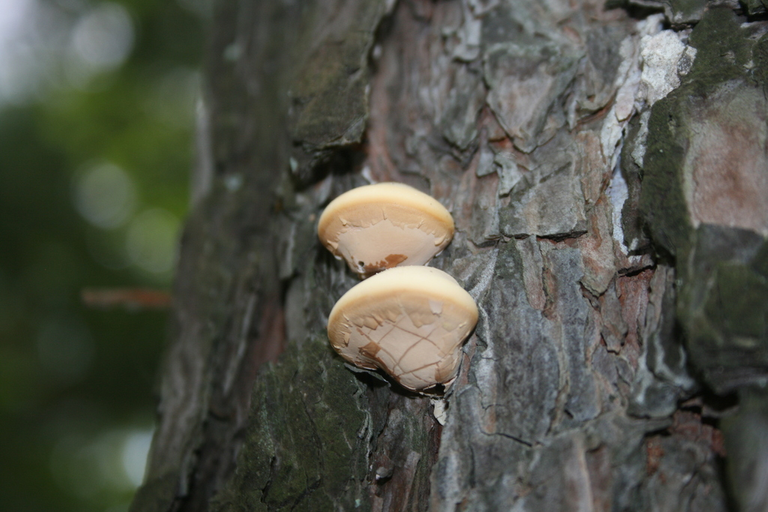
Deer Mushroom (Pluteus cervinus):
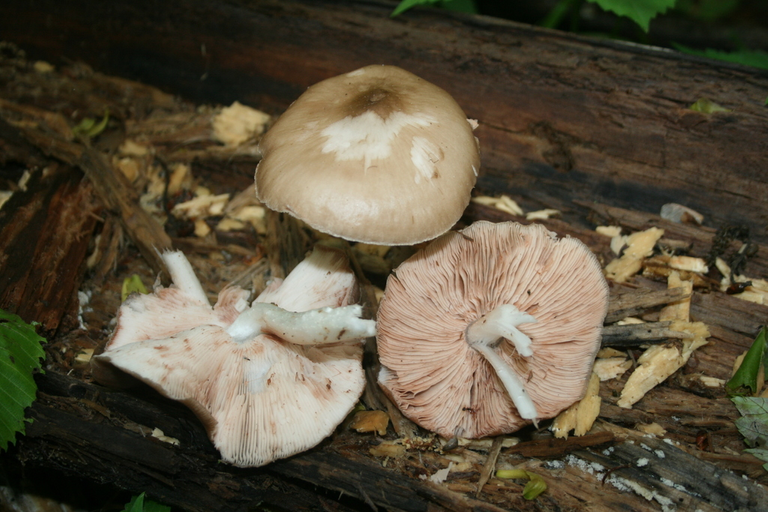
Hypoxylon Canker (Biscogniauxia atropunctata):
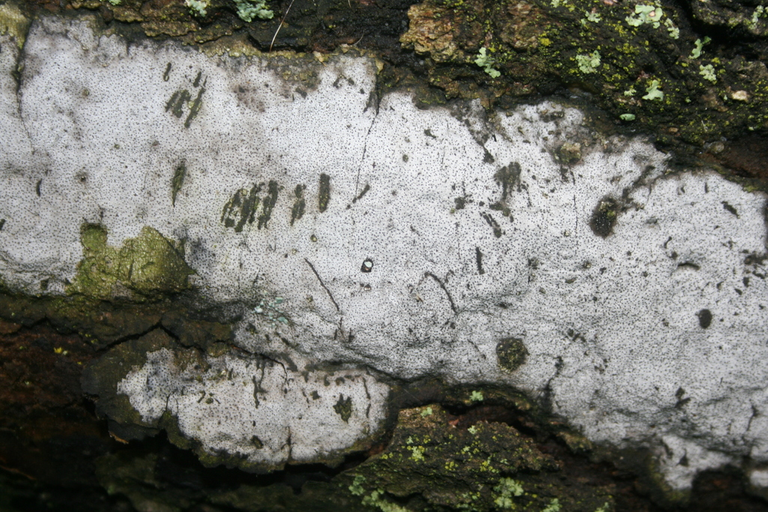
Violet-toothed Polypore (Trichaptum biforme):
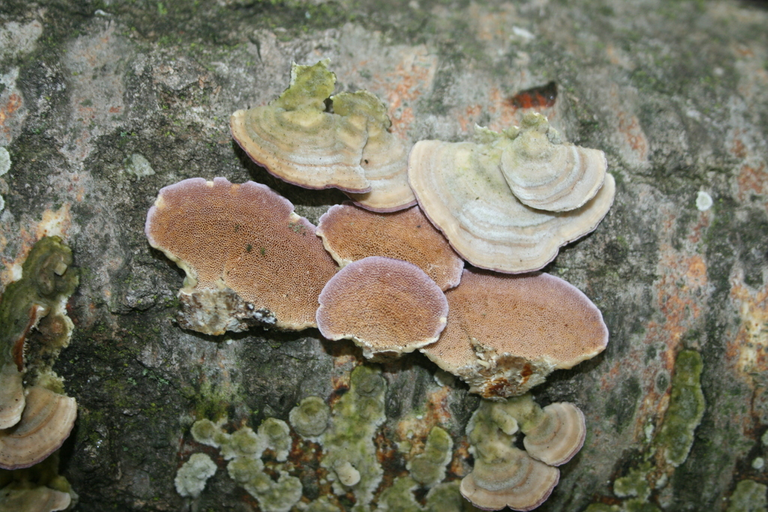
Summer Oyster Mushroom (Pleurotus pulmonarius):
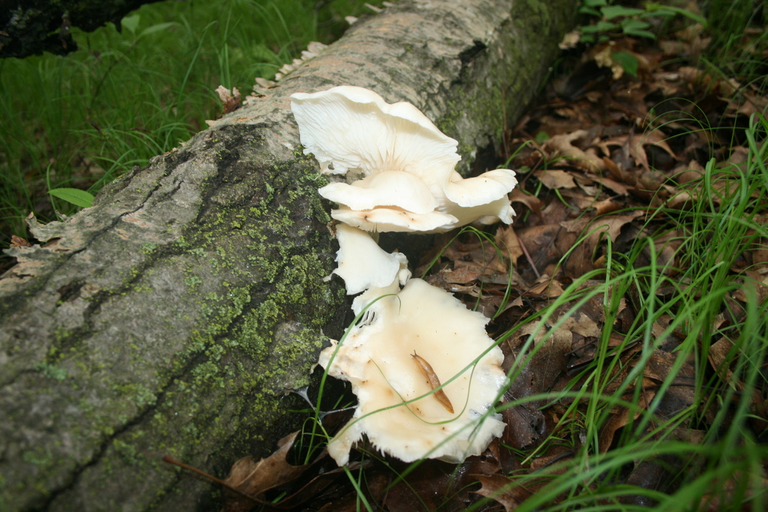
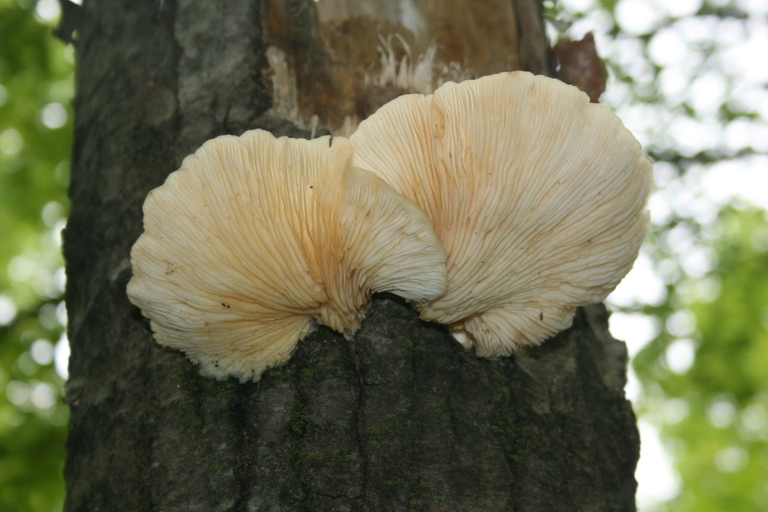
Crowded Parchment (Stereum complicatum):
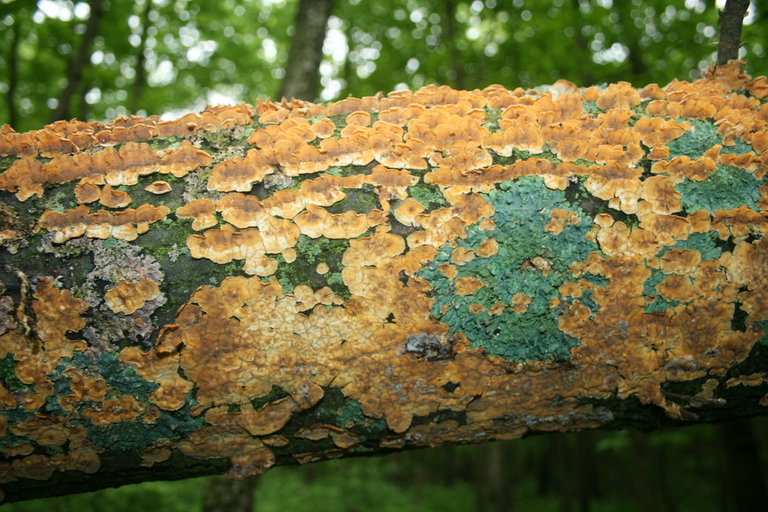
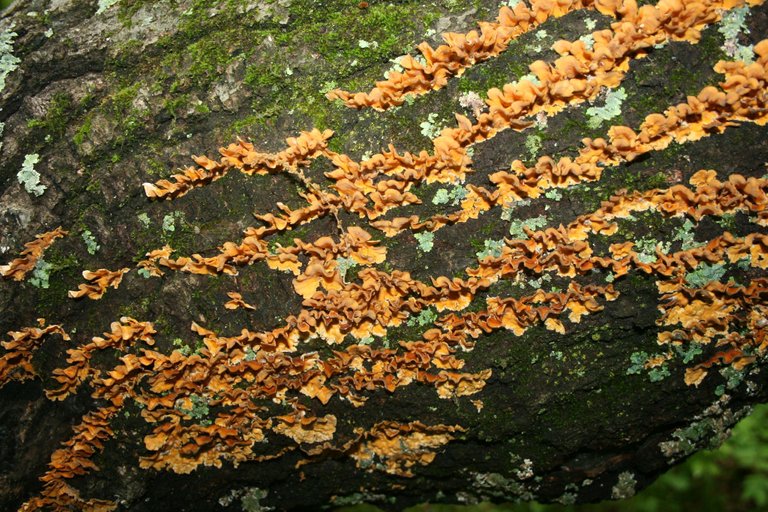
Splitgill Mushroom (Schizophyllum commune):
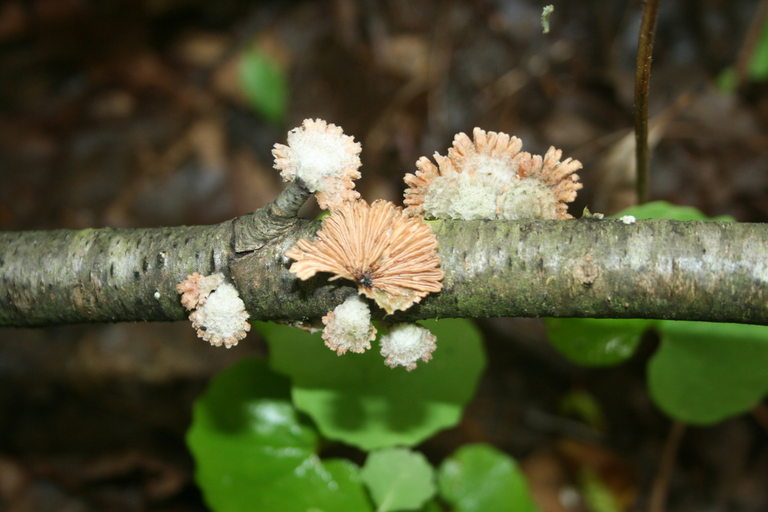
Gilled Polypore (Trametes betulina):
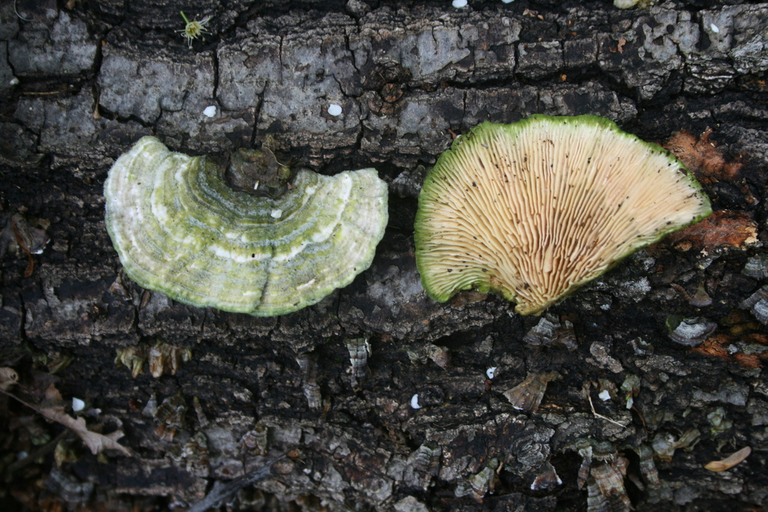
Eastern American Platterful Mushroom (Megacollybia rodmanii):
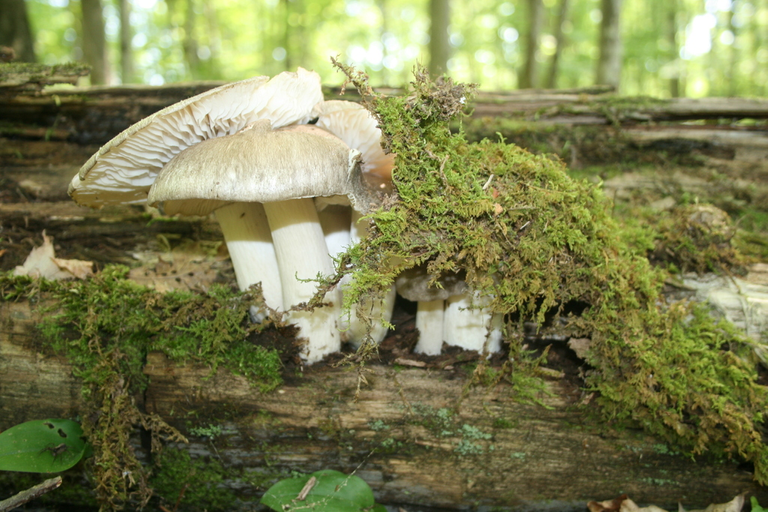
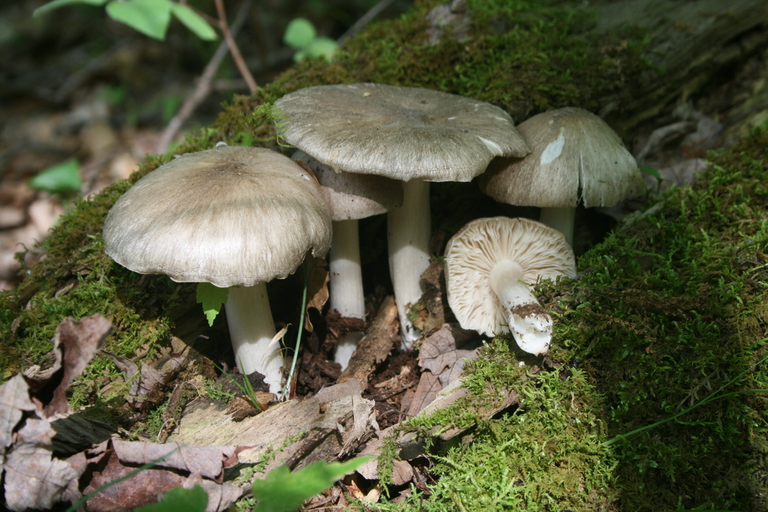
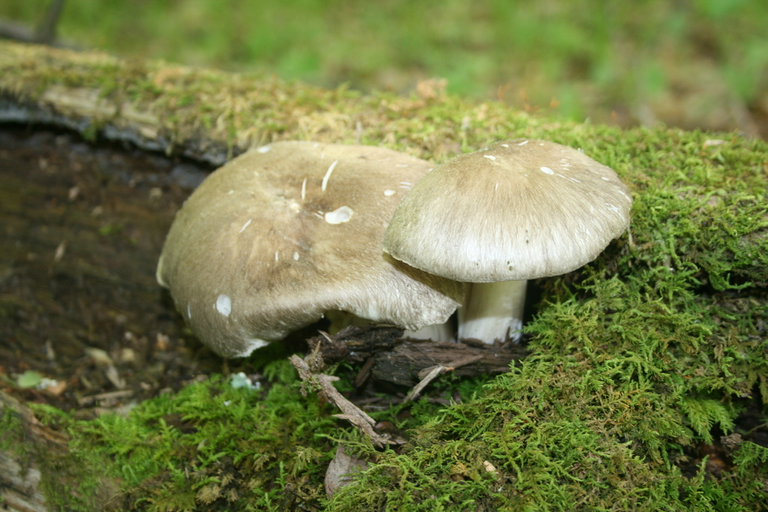
Neofavolus americanus:
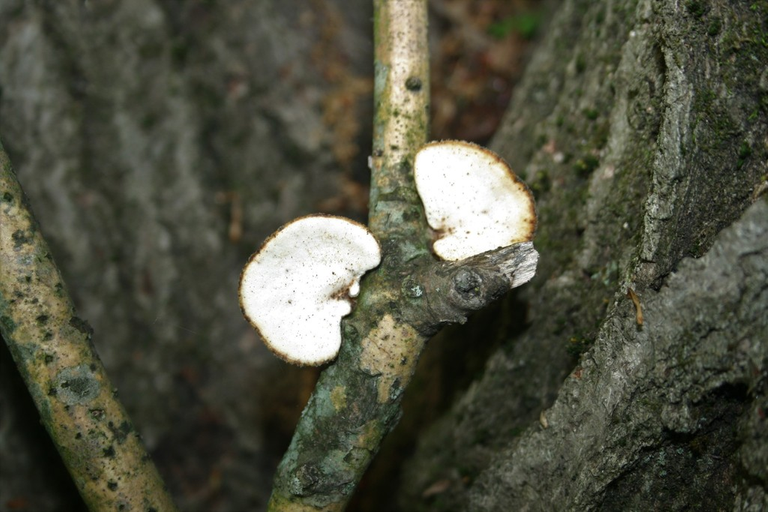

Apart from these fungi, for which I am fairly confident that I have the correct identifications, I also came across one other fungal species that I cannot currently identify. The species that I have found to most closely match this particular observation is the Bristled Parachute (Marasmius cohaerens), however when I compare the stems of this species to that of my observation, they do not appear to match to my eye. The mushrooms seen in my observation have an ochre-red stipe that begins to become more pale at the very top just beneath the cap and is adorned with fine hairs that become more dense towards the base of the stipe. In images of Bristled Parachute that I am able to find online, the stipe has a very similar coloration, though the fading from the ochre-red color seems to occur further down the stipe than in my samples. In addition, the stipes in images I have found online of Bristled Parachute appear to have no hairs on them. The caps of both my observation as well as those of Bristled Parachute appear very similar, but the differences between the stipes are substantial enough that I am not confident in identifying this observation. If anyone more familiar with this species can help me with my identification, I would greatly appreciate the help!
Bristled Parachute (Marasmius cohaerens):
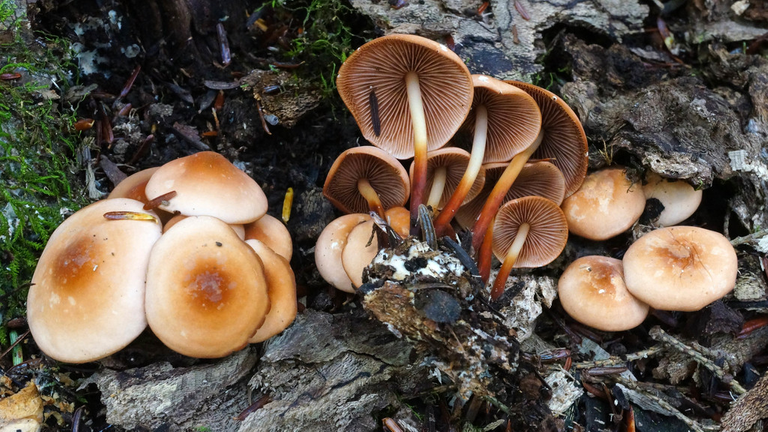
Image credit: Tom Bigelow - https://www.inaturalist.org/observations/10766554
My observation:
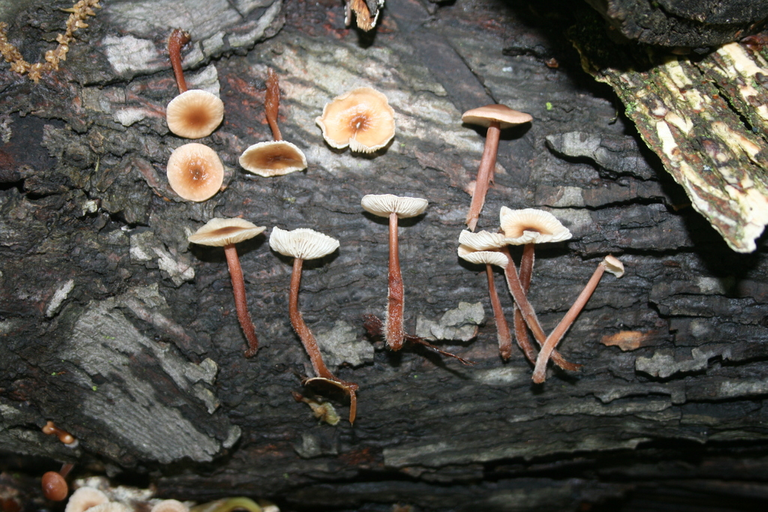
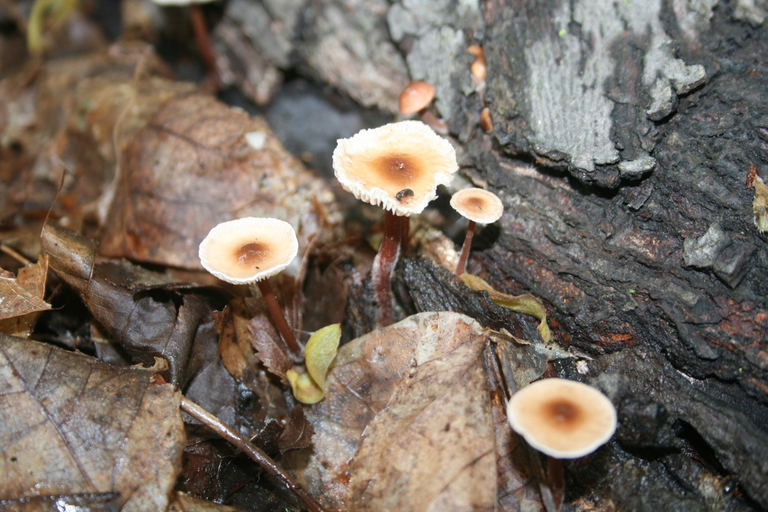
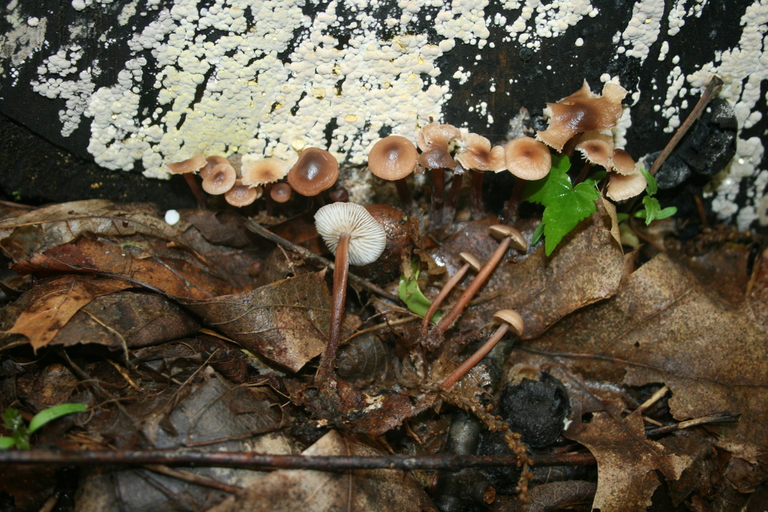
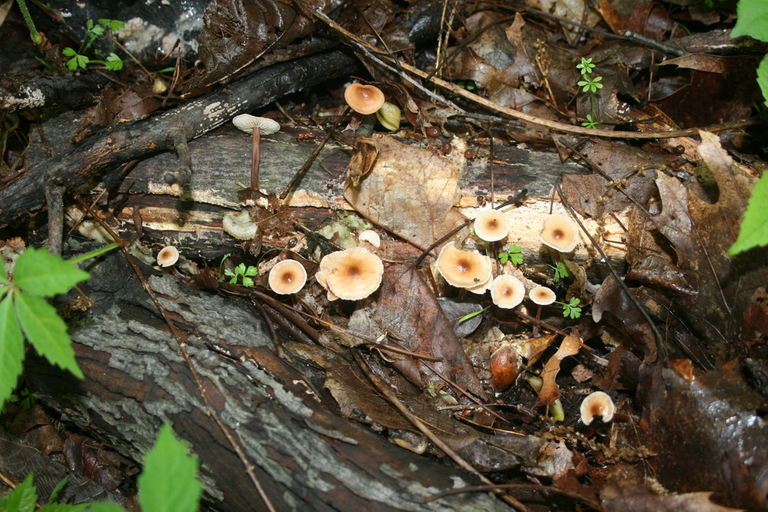
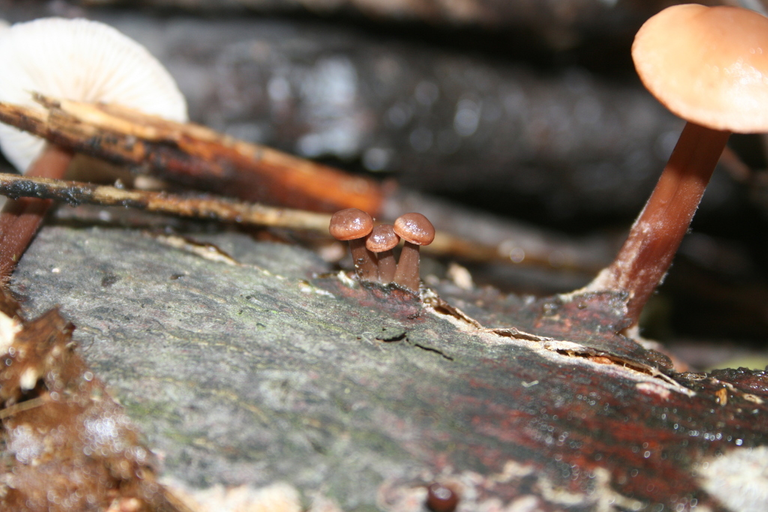
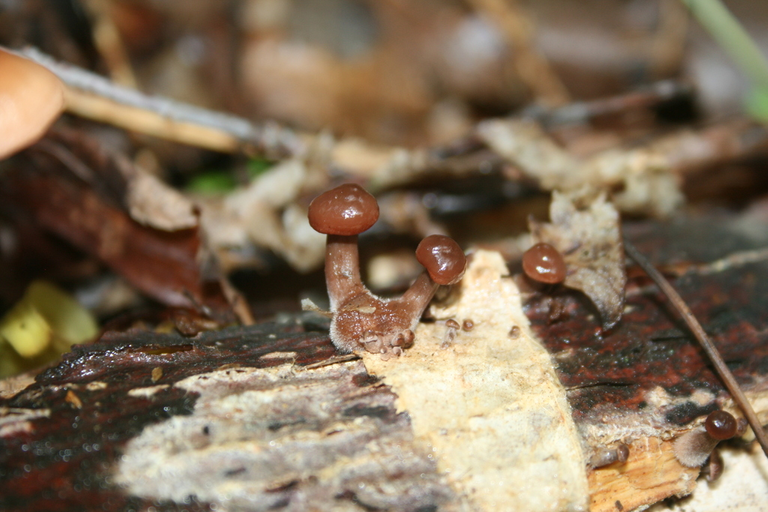
If you have any idea what this observed species may be, feel free to offer your suggestions!
My NFT Showroom gallery: https://nftshowroom.com/tych021/gallery
Creary Gallery: https://creary.net/@tych021/projects
Publish0x reflink: https://www.publish0x.com?a=M7e58kDYd2
PeakD reflink: https://peakd.com/register?ref=tych021
NFTShowroom reflink: https://nftshowroom.com/?r=tych021
Twitter: https://twitter.com/tych021
Vimm.tv: https://www.vimm.tv/tych021